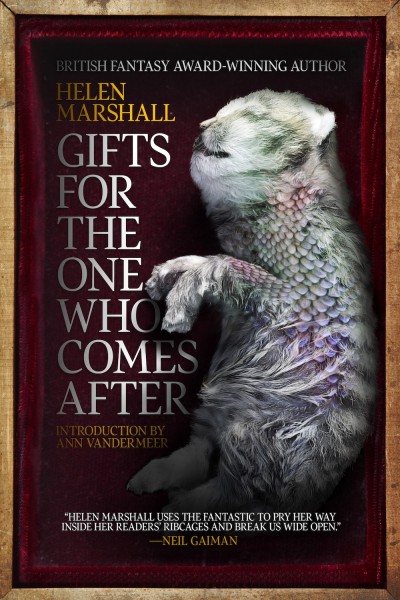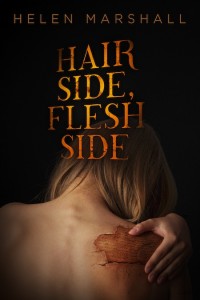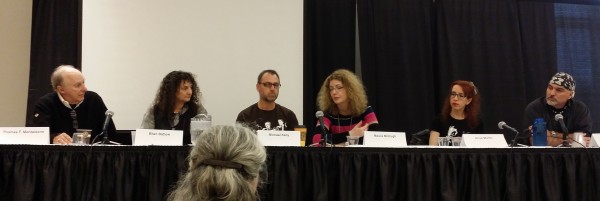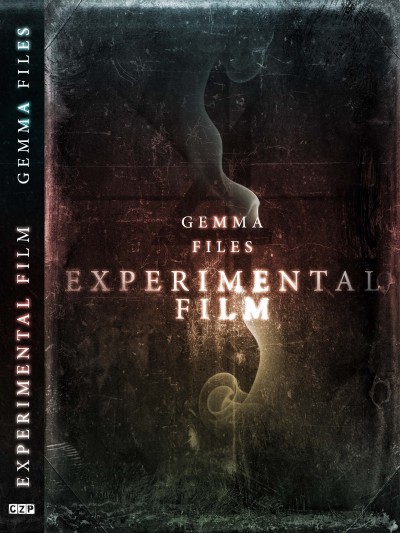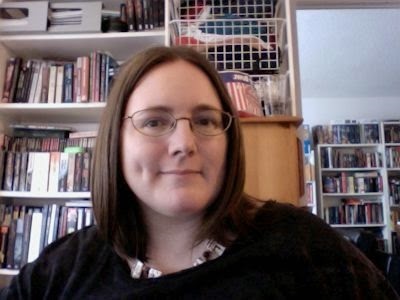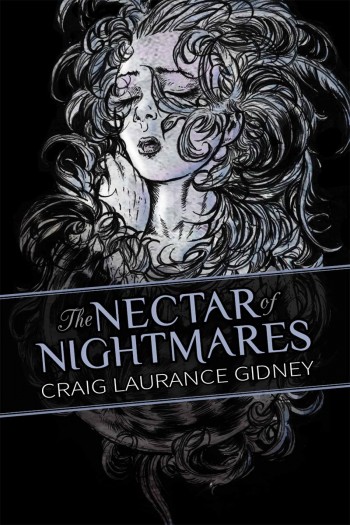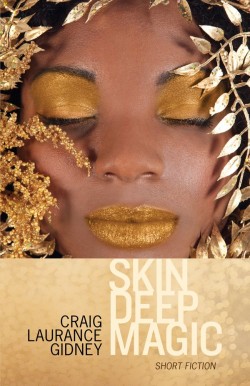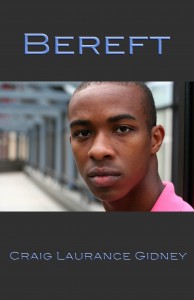Awards seem to come naturally, or perhaps supernaturally to Helen Marshall whose words weave threads across horror, dark fantasy and into the Weird. Her most recent collection Gifts for the One Who Comes After (ChiZine Publications, 2014) earned her both a World Fantasy Award and a Shirley Jackson Award, and is shortlisted for the ReLit Awards which honor the best new works from Canadian independent publishers. Her first collection Hair Side Flesh Side (ChiZine Publications, 2012) won the British Fantasy Sydney J Bounds Award for Best Newcomer.
Helen traces her transition from small town Ontario to poet to a PhD in Medieval Studies to managing editor for ChiZine Publications to short story writer and now novelist (she hopes to finish her first novel Icarus Kids, which draws on her Medievalist background and explores “plague, denial and apocalypse” this week). She also discusses how the writing community sustains her work, a certain unencumbered freedom in current Canadian spec-lit, and the strong indie press movement in Canada including ChiZine and Undertow Publications. References are made to Robert Aickman including Helen’s unexpected fondness for his story “The Swords” and a shared philosophy of endings, as well as Clive Barker, Stephen King, Etgar Keret
and Gabriel Garcia Marquez. Helen takes us on a wild ride, peeling back the skin of her imagination including playing with the “rules” of genre, the capaciousness of the Weird, the strange economy of medieval relics, where magic realism and absurdism and medievalism intersect, and how personal transitions provoked her to engage the “monster in the basement” of her second collection: Legacy. They delve deeply into the archaeology of specific stories including “Sanditon” which plays off the concept of “body as book” in Medieval lit, “Ship House” which explores a legacy of violence inherited from her South African mother, her recurring theme of offbeat consumerism meets a childish sense of make-believe turned disturbingly real in such tales as “Supply Limited, Act Now” about kids in an idyllic Bradburyesque community who order a shrink ray that works, and more. Finally, Helen recommends Indian author Indra Das (The Devourers), recent The Outer Dark guest Gemma Files (especially her recent novel Experimental Film), and Nina Allan (The Race).
News from the Weird: Arkham Digest columnist/Strange Aeons fiction editor Justin Steele reviews a weird work from the Vault, Matt Cardin’s Divinations of the Deep (Ash-Tree Press, 2002), an excellent collection of five cosmic horror stories that may lurk just outside the radar of some readers recently discovering the Weird.
Then Mike Davis, editor of Lovecraft eZine, joins Scott and Justin again to talk about exciting Kickstarter stretch goals for his highly anticipated Autumn Cthulhu anthology and more. Plus two new fiction magazines and a major Weird market now reopened to submissions, as well as another author reveal from the much anticipated Lost Signals anthology (ed. Max Booth III/Perpetual Motion Machine Press).
This archival episode will be available again at This Is Horror soon. In the meantime, subscribe at iTunes or Blubrry to make sure you don’t miss an episode.
Next week’s guest: Rios de la Luz, author of The Pulse Between Dimensions and the Desert.
More links:
https://www.facebook.com/gamutmagazine/?fref=ts
https://whatdoesnotkillme.com/2015/12/22/gamut/
https://www.facebook.com/mantidmagazine/?pnref=lhc
https://mantidmagazine.tumblr.com/
Nightscript: https://chthonicmatter.wordpress.com/
Stories from the Borderland: https://scottnicolay.com/blog/
